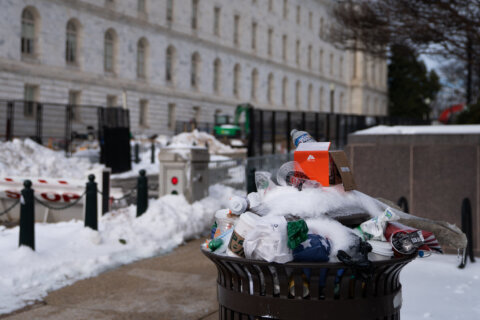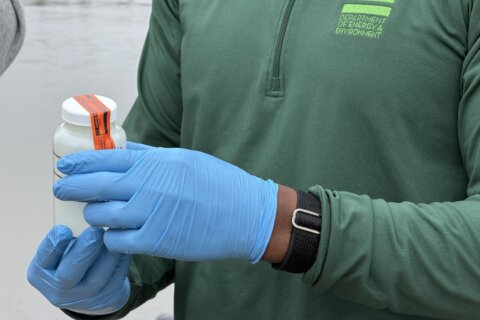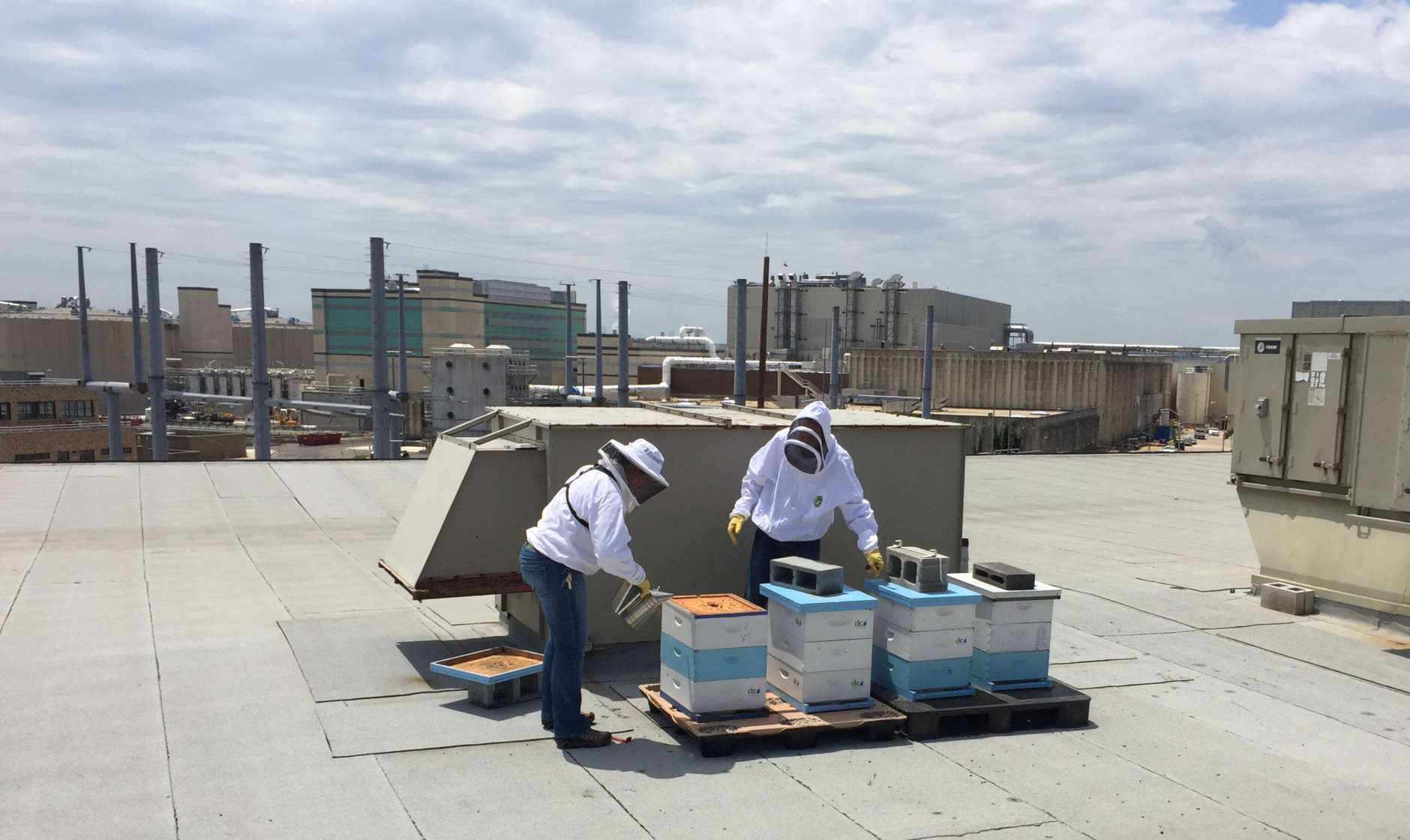
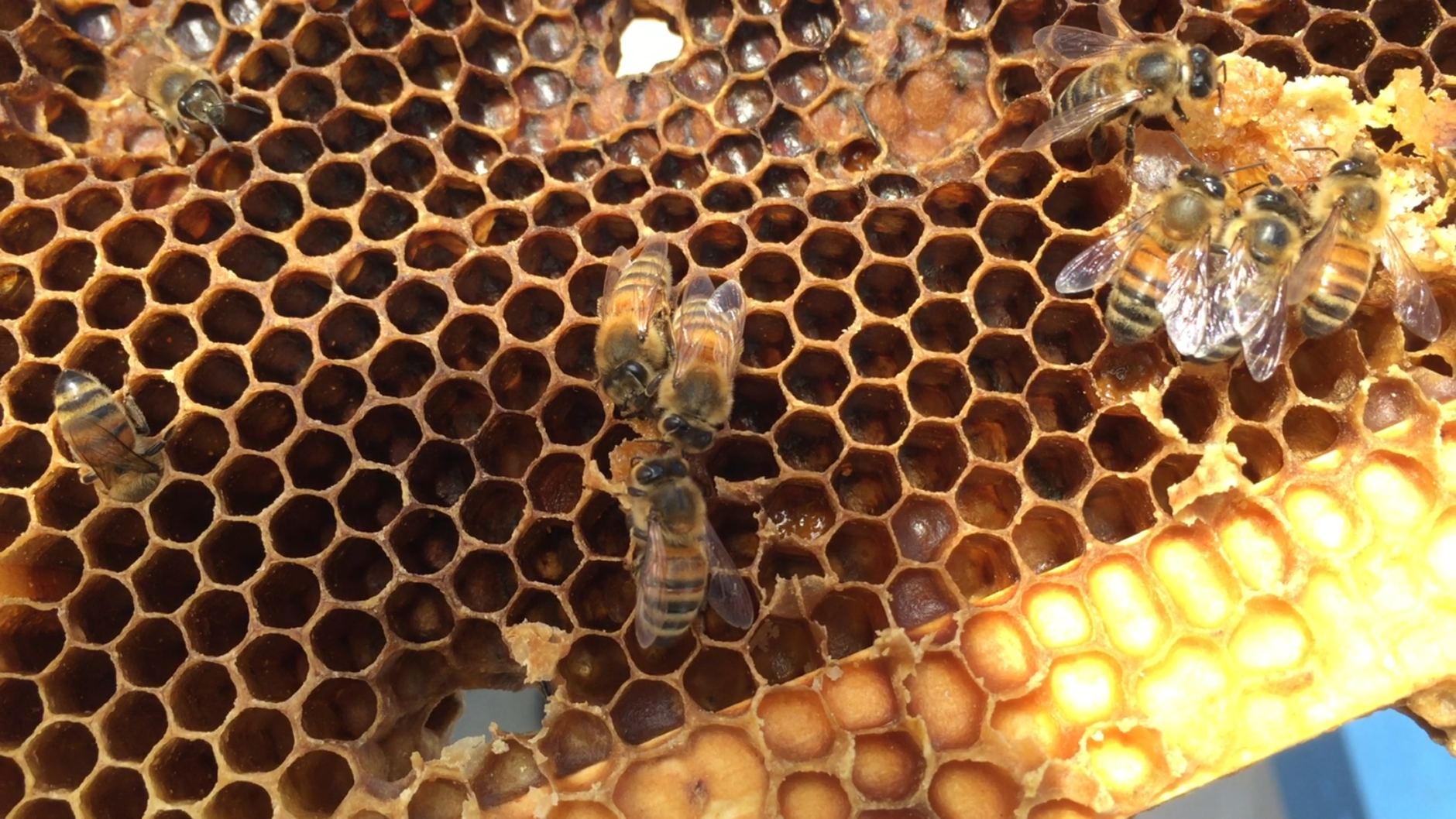
#HoneyBee colony at Blue Plains wastewater plant gets inspected @DOEE_DC. Learn why @DCBeekeepers is helping @dcwater w bees @WTOP 103.5fm pic.twitter.com/eBcerLl67a
— Kristi King (@kingWTOP) May 31, 2017
Real life VS fiction: calming #bees (w in this case burning burlap) doesn't involve LOTS of smoke @dcwater @DOEE_DC @DCBeekeepers @WTOP pic.twitter.com/Vn9zNfimVY
— Kristi King (@kingWTOP) May 31, 2017
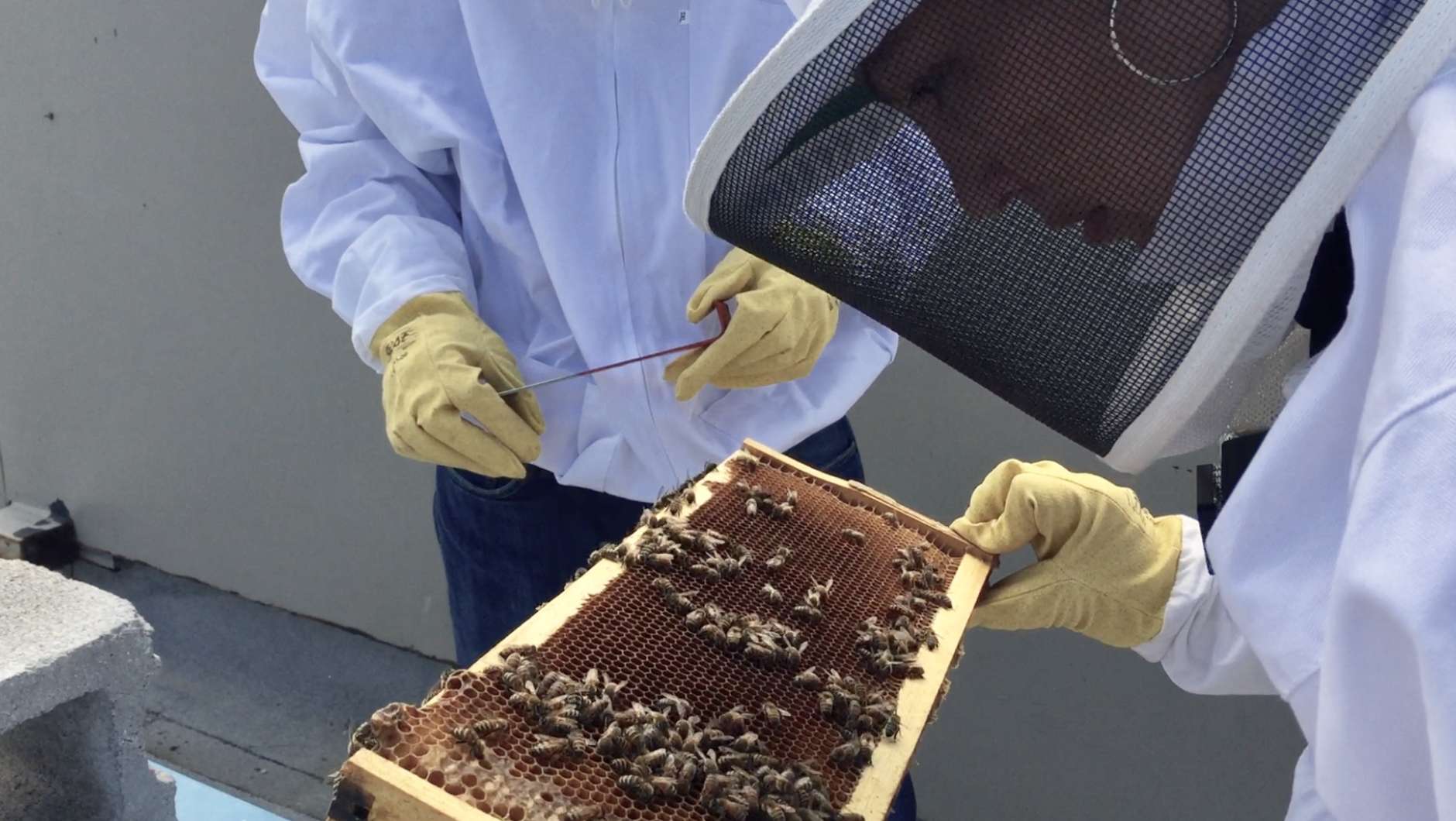
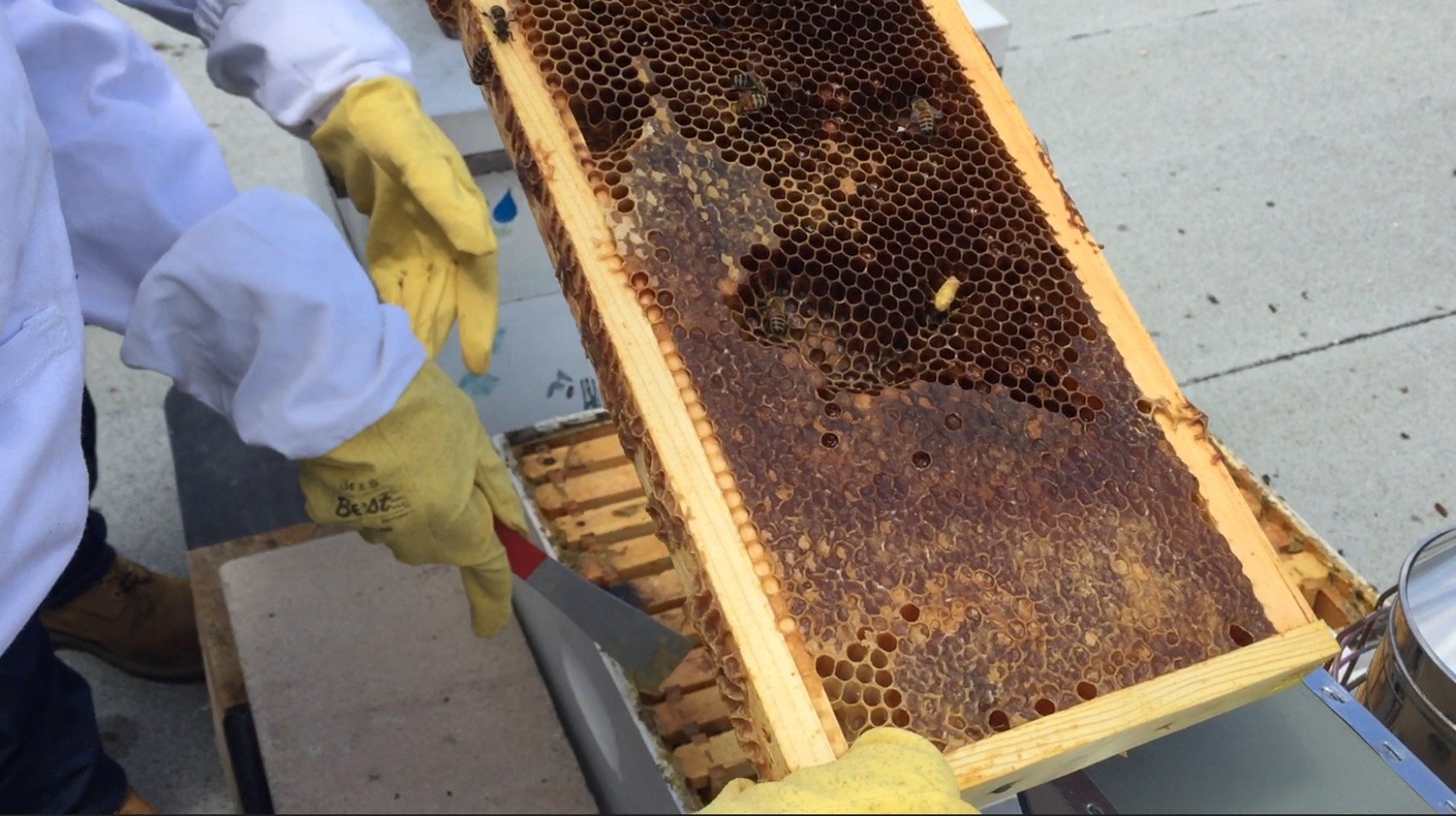
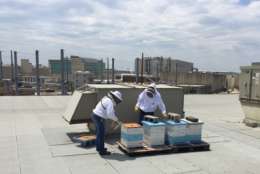
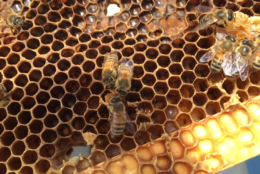
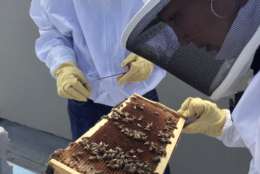
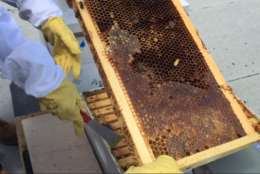
WASHINGTON — The work of DC Water involves everything from the Potomac River to sewers and drinking fountains, but the utility also is in the bee business.
“We work with the D.C. Beekeepers Alliance,” said Bill Brower, DC Water’s manager of biosolids operations. “We want to support urban beekeeping and urban agriculture in general.”
Bees love the location along the Anacostia River where they have a water source, said DC Water spokesman Vince Morris.
“We’re also very close to Oxon Hill Farm … that’s hundreds of acres of trees and flowers and gardens,” Morris said. “So there’s lots of pollen nearby and they have a safe environment here.”
Morris noted that the bee population has suffered in recent years, so “every little thing you can do to help is worthwhile.”
The DC Water urban beekeeping effort also includes education. Bees absent from the plant on Wednesday were at a local elementary school being introduced to students so they could learn how beekeeping works and how bees make honey.
The hives at Blue Plains produced 150 pounds of honey last year.
There are 238 registered bee colonies in the District, but there likely are more, according to a hive inspector with the city’s Department of Energy and the Environment (DOEE).
The colonies are monitored for health and to assure the bees are being kept properly with space appropriate for hive density and access to water.
DOEE Fish and Wildlife biologist Natasha Garcia-Andersen said many people are afraid of bees — mistaking them for wasps and hornets, which she calls “just mean and ornery.” But bees, she said, are nice and mellow.
“If your neighbor has a beehive, it shouldn’t be a problem,” Garcia-Andersen said.


